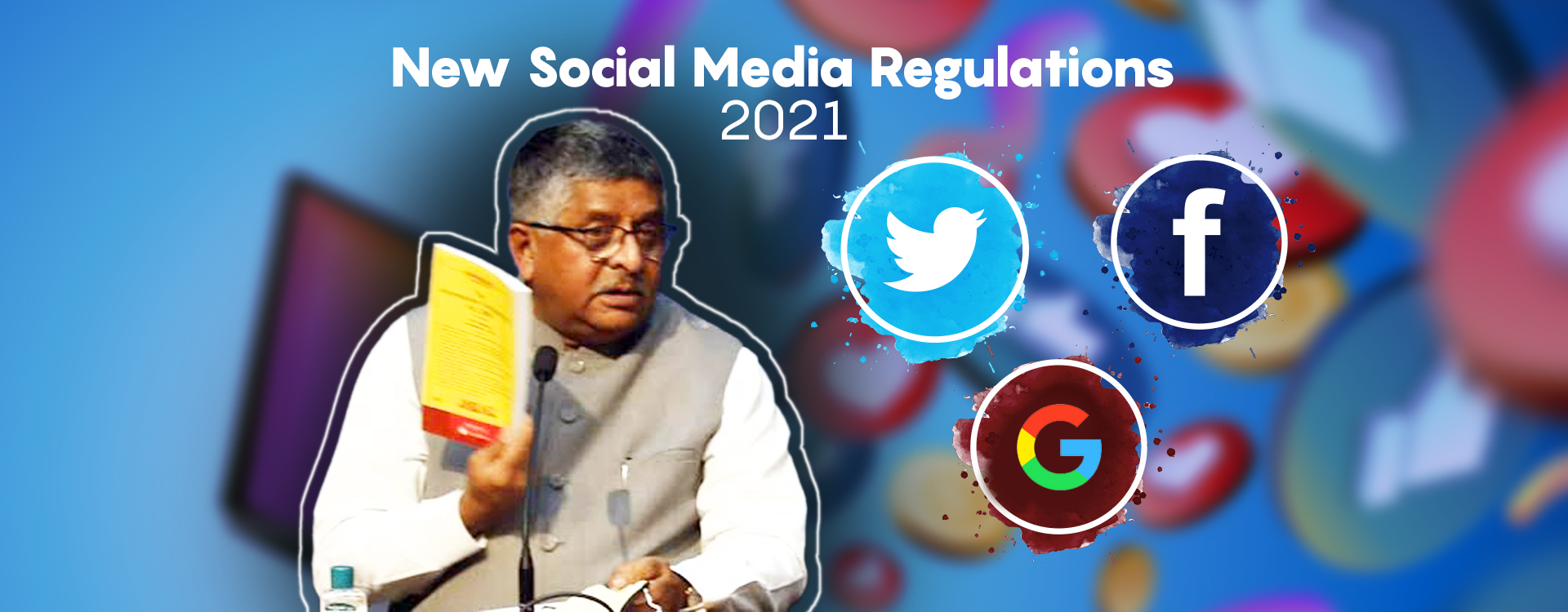On February 26, 2021, the Indian government passed a bill to introduce new regulations for social media, digital media (including news outlets) and OTT platforms operating in India. These recent changes come at a time when technological developments in the country are pushing innovation and entire sectors amidst a pandemic exacerbated by the economic crisis.
What transpired in the lead up to the new regulations for social media platforms?
On February 10, 2021, Indian officials held a virtual meeting with the top leaders of Twitter. Government officials outlined that the social media giant is “welcome to do business in India,” but it had to follow the country’s laws “irrespective of Twitter’s own rules and guidelines”.
The meeting was the outcome of tensions between the Bharatiya Janata Party government and Twitter. The Modi government’s passage of new farm laws has ignited protests that are going on for nearly five months now. The government had asked Twitter to remove provocative hashtags and tweets from accounts used by alleged Sikh and Pakistani separatist groups.

Twitter outright pleaded that it would not block the accounts of media companies, journalists, activists and politicians because that would amount to the violation of the fundamental right to free expression under Indian law.
New rules and regulations- bringing everything under the government’s ambit
According to the new government regulations of February 26, 2021, intermediaries such as WhatsApp must identify the first “author” of the content and messages deemed a threat by the government. All such platforms will have to remove illegal content within 36 hours of receiving notification. The government issued these new rules in addition to the Information Technology Act 2000. The government clarified that it is not asking the intermediary to break any encryption by seeking to know the originator of the message.
‘‘
The government's motives behind these new rules seem to be that of a monitoring agency rather than an inhibitor of business.
New rules for social media sites- how will they function in the future?
New government regulations governing internet businesses such as Facebook, WhatsApp and Twitter pose new challenges for the US social media giants in a large Indian market critical to their global reach.
Social media companies must revoke and takedown explicit porn-related content within 24 hours of reporting under the new rules. The companies are also expected to appoint agents and work with people living in India to coordinate law enforcement and handle complaints. They also need to help identify the “first real sender” of specific messages that pose some form of threat.
Representatives for Facebook and WhatsApp said Facebook has “always been clear as a company that we welcome regulations that set guidelines for addressing today’s toughest challenges on the Internet.”
How can the new changes impact SMEs running and advertising on social media platforms?
The new regulations majorly bring content assets and targeted content that can potentially harm the civil discourse and violate the Indian law under the purview. There does not seem to be an adversarial impact on the small businesses running via social media. Numerous small businesses have benefited from the campaigns and advertisement services offered by initiatives like Facebook for Business, Google Shops, Instagram Shop, Twitter ad campaigns.
The government’s motives behind these new rules seem to be that of a monitoring agency rather than an inhibitor of business. These mega-corporations bring vast opportunities for Indian people and continue to do so as long as no laws are violated. Nevertheless, what the future holds for businesses and content creators on these platforms cannot be ascertained. What can be said is that there is no immediate threat to any SME running through these platforms.




